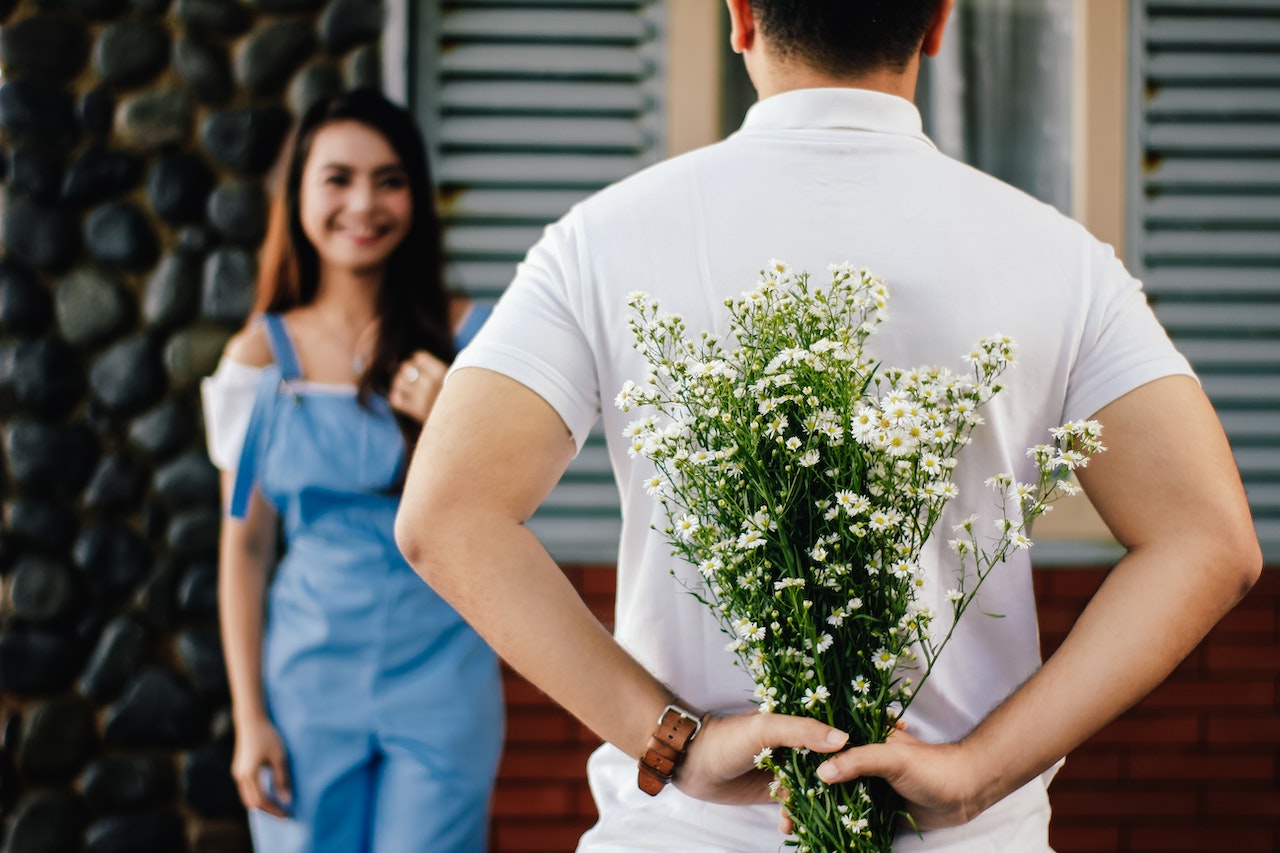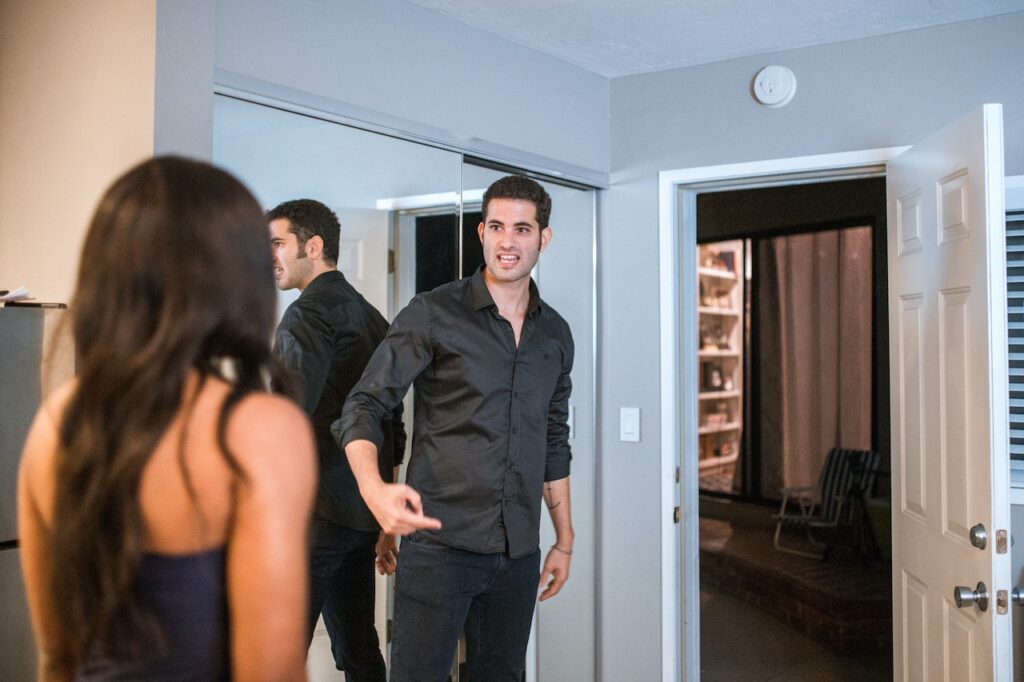Why Do I Fall in Love so Easily?

Why Do I Fall So Fast? Decoding the Love Puzzle
Ever find yourself head over heels at the drop of a hat? You’re not alone in this love boat! According to research from the National Library of Medicine, a whopping 45% of folks believe in love at first sight, with many falling hard and fast.
Jumping into love can feel like an emotional roller coaster, full of thrilling highs and gut-wrenching lows.
In this chat, I’ll walk you through the maze of factors that make us prone to lightning-fast romance.
We’ll dive into the fascinating mix of psychological, biological, sociocultural, and personal ingredients that cook up our love lives. So, buckle up, and let’s jump into this love story!
The Biology of Love: Your Body’s Secret Romance Plan
Did you know your body’s got a sneaky little love potion brewing inside? Yep, those tiny troublemakers called hormones and neurotransmitters are working overtime to make you fall head over heels!
Take dopamine, for instance. When we meet someone new or start a fresh relationship, this feel-good chemical floods our system, making us feel on top of the world.
Then there’s oxytocin, the “cuddle hormone,” that helps us bond and feel all warm and fuzzy inside. Serotonin and norepinephrine join the party too, messing with our mood and energy levels.
No wonder people fall in love at first sight! Our bodies are practically throwing a party every time we’re around someone we’re into. But hey, this isn’t the whole story.
From an evolution standpoint, our brains are always on the lookout for potential baby-making partners. We’re hardwired to find mates who can help us make healthy little humans and stick around to raise them.
But here’s the kicker – while these biological factors might explain why we’re drawn to certain people, they don’t guarantee a lasting love story. That’s where our own self-awareness and personal growth come into play.
By understanding how our bodies play cupid, we can make smarter choices about our love interests and focus on building strong, healthy connections that go beyond that initial rush of attraction.
The Self-Esteem Factor: When Love Becomes a Band-Aid
Let’s chat about self-esteem. It’s like this invisible force that shapes how we feel about ourselves and how we connect with others.
When we’re not feeling great about ourselves, we might be more likely to fall in love quickly because we’re craving the approval and acceptance that comes with a relationship. We spend every waking moment wondering if this new connection will fill the void and make us feel worthy.
The tricky part is, when our self-esteem is low, we might not be as picky as we should be. We’re so eager to be in a relationship that we might ignore red flags and signs that we’re with the wrong person. And this is where past relationships can come into play: if we’ve experienced toxic behaviors or negative patterns before, we might not even realize we’re repeating them. For more on breaking negative cycles, check out how to break the cycle of health anxiety.
So, here’s the deal: understanding our attachment style and working on our self-esteem can be super important for building healthier, more fulfilling relationships. It might just be the secret to making sure that when we fall in love, it’s with someone who truly complements and supports us, not just someone who’s there to fill a void.
Love in the Age of Instagram: How Society Shapes Our Romance
We live in a world where media and cultural beliefs shape our thoughts and feelings, so sometimes it’s hard to separate fact from fiction. For more on how others’ perceptions affect us, you might find why do guys stare at me but never smile interesting.
First off, let’s talk about the influence of media. You know how movies and TV shows tend to make love look all perfect and magical? Well, that can lead to some pretty unrealistic expectations when it comes to real-life relationships. It’s like we’re constantly comparing our love lives to these fictional fairy tales, and that can make it tough to appreciate the beauty of a real, imperfect, healthy relationship.
Cultural Love Rules
Different cultures value relationships differently. Some put a lot of pressure on finding “the one” and settling down, which can make folks with anxious attachment patterns feel even more stressed.
It’s like there’s this invisible timeline we’re supposed to follow, and if we don’t, we feel like we’re failing. Sometimes people get so caught up in finding “the one” that they don’t even take time to really know the person they’re seeing. Blame it on society’s pressure to be coupled up, making folks fall in love at the drop of a hat!
And remember what we said about self-esteem? Having low self-esteem can make us even more likely to fall into this trap.
So, what’s the takeaway? Well, being aware of how society shapes our romantic thoughts and relationship goals can help us make more conscious choices in our love lives.
If we can see past the unrealistic expectations set by the media and understand how culture affects our love goals, we can focus on building stronger, more genuine connections with people. Now, that’s what I call real love!
Your Love Story: How Your Past Shapes Your Present
Our personal experiences and upbringing play a huge role in how we approach love and relationships. But here’s the good news: by recognizing these influences and working to understand them, we can take control of our love lives and make better choices when building strong, healthy connections with others. If you’re struggling with showing affection, you might find why am I not affectionate anymore helpful.
We’re not necessarily talking about destiny here, but it’s hard to deny that our history can heavily influence our current and future relationships.
First up, our family history. You see, our parents’ relationship often serves as a model for how we approach our own love lives. Our subconscious decides this is how true love should look, even if it’s not necessarily the healthiest example.
Then there are our early experiences, those childhood attachments that can shape how we form emotional connections later in life. For some, this might mean quickly developing deep feelings; for others, it could result in fear of intimacy or obsessive emotions.
Ever noticed how some people seem to have a “type,” repeatedly falling for the same kind of person? This attachment pattern is created by our past experiences, where we subconsciously seek out new partners who fit familiar molds.
But here’s the thing – not all patterns are healthy or helpful, especially if they’re rooted in loneliness, feelings of inferiority, or a past unhappy relationship.
When we’re aware of our patterns and the lessons we’ve learned (or still need to learn) from past relationships, we can work towards breaking the cycle. For example, if you find your interest immediately fades once the object of your desire finally becomes available, it might be time to explore why you’re drawn to these situations and figure out how to stop falling for people who are emotionally unavailable.
Building Better Love: Strategies for Healthier Relationships
Now that we’ve explored all these factors that can influence why we fall in love so easily, let’s talk about some strategies to develop healthier relationship patterns. After all, it’s all about growth and self-improvement, right?
Know Thyself
Recognizing our own patterns is super important if we want to break free from those not-so-great relationship cycles. By taking a good, hard look at our past experiences, we can figure out what we really need and value, and then use that wisdom to make better decisions in our love lives. It’s like we’re becoming our very own love gurus!
Love Yourself First
Next on our to-do list: let’s boost that self-esteem! Being kind to ourselves and practicing self-care is crucial for building rock-solid self-worth.
And guess what? When we’re feeling confident and awesome about ourselves, we won’t be chasing after validation from others. Instead, we’ll be picking partners who truly complement us, like two peas in a pod!
Plus, pursuing personal growth and interests can help us feel more fulfilled and whole, making us less likely to jump into relationships out of fear of being alone.
Get Some Expert Love Advice
Lastly, if you’re struggling to make sense of your relationship patterns or finding it difficult to break free from unhealthy cycles, seeking professional help can be a game-changer.
Therapy or counseling can offer guidance and support in understanding your past experiences and working towards healthier relationship patterns. For more on healing unhealthy relationship patterns, you might find how to heal codependency helpful.
And don’t forget about support groups – connecting with others who share similar struggles can provide a sense of community and encouragement as you navigate your journey towards healthier love.
Remember, it’s all about taking the time to understand yourself and your needs, and working on becoming the best version of yourself. That way, you’ll be better equipped to attract and nurture the kind of love you deserve.
Your Love Journey Starts Here
Falling in love easily can be a wild ride, influenced by a mix of psychological, biological, and sociocultural factors, plus our own personal experiences. The good news is that by focusing on self-awareness, reflection, building self-esteem, and seeking professional help, you can work towards developing healthier relationship patterns and enjoying more fulfilling connections with others.
If you’re feeling overwhelmed or unsure where to start, don’t hesitate to book a therapy session. There’s no shame in seeking guidance and support from a professional who can help you navigate your unique journey toward healthier relationships.
Remember, investing in your emotional well-being is crucial to building the kind of love life you truly deserve. So go ahead and book that therapy session, and take the first step towards a happier and more balanced love life!
Reference: https://www.ncbi.nlm.nih.gov/pmc/articles/PMC4963394/

Author: Michelle Landeros, LMFT
Michelle Landeros is a Licensed Marriage Family Therapist (LMFT). She is passionate about helping individuals, couples and families thrive.







